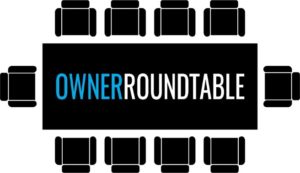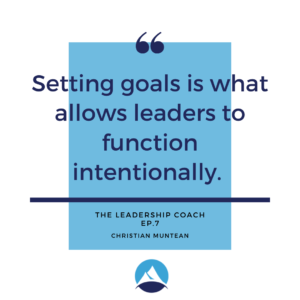What You Think is Strategy Might Not be Strategy

 “Everybody has a plan until they get punched in the mouth.” – Mike Tyson
“Everybody has a plan until they get punched in the mouth.” – Mike Tyson
I’ve been practicing Brazilian Jiu Jitsu (BJJ) for about four years now. As a sport, BJJ has been described as trying to solve a 200lb Rubik’s Cube. That fights back. I love it.
One of the most important lessons that I’ve learned in the last 12-18 months has been how to set and execute a fight strategy. A fight strategy is simple: At the beginning of a match, I decide what my goal is and how I will approach it. You might think that my goal is always “to win” and the approach is to “fight hard.” That’s what I used to think. Using that single strategy, I lost a lot, got injured frequently, and basically made slow progress. It really wasn’t a strategy.
Below are four examples of what I really mean. If I’m matched with someone:
- Who I know is far better and faster than me, my goal might be to avoid or delay submission for as long as I can. My approach might be to move slowly myself, to avoid making mistakes. And keep as much weight on them as possible to slow them down as well.
- Who I don’t know, and seems new, strong, and angsty, my goal might be to keep us both safe. My approach will be to play defensively and to control the pace of the fight.
- Who is much smaller and less experienced than me, my goal might be to practice moderating my intensity so that they have a fun match. My approach might be to experiment with new techniques but not try to finish a submission.
- Who I don’t know, but is at my level, my goal might be to submit them. My approach might be to control the pace of the fight long enough to find an opening.
That’s it. Those are examples of strategy. And my likelihood of actually achieving my goals is very high. It’s a clear focus that allows for a lot of unexpected. That’s true in life and business as well.
But wait, what is strategy?
As stated earlier, a strategy is simply a goal and an approach. And it’s always situational. Or more technically: A framework for setting goals and making decisions built on pre-defined values and priorities. The simplicity of this is important. A strategy allows for flexibility. It allows you to stay on course – even if you have to find a different course. Focused and nimble.
Good plans are very focused – but they aren’t nimble. Plans, by their nature, are specific, structured, and often detailed. They assume a high level of control. They are often sequential and Phase II requires the completion of Phase I. They fit on calendars and GANTT charts.
Plans are not strategy. They are informed by strategy. They serve the strategy. As Mike Tyson said, “Everyone has a plan until they get punched in the mouth.” The plan can change and usually will. The strategy will see you through.
Why does strategy matter?
In the craziness that has been 2020: All of my clients are having record-breaking years. Their success is sustainable. They are all positioned and planning for continued growth next year. They come from very different industries. For some, the new economy moved in their direction. For others, the economy clearly was running away from them.
But one of the few things they all have in common is they engaged this year with a well-defined strategy and they stuck to it. They each had a clear goal and a defined approach or framework for making decisions and managing priorities. They stuck with it – and it has guided them through a chaotic year, with high uncertainty and shifting ground rules.
All of their strategies are very simple. They all fit on one sheet of paper. Not a huge document that no one will read. They do develop plans. And throughout the year, their plans have been updated. But a change in the plan didn’t change their focus.
Strategy has allowed them to stay focused and be very nimble – even when plans need to change. A clear strategy dramatically increased the likelihood of their success.
Do plans matter?
Yes. Plans matter. Plans are what provide direction, alignment, accountability, inform budgets, help you manage resources, and communicate. It’s very difficult to execute a strategy without a plan.
But plans change and should be expected to do so. The most effective teams avoid the traps of feeling that a plan is a predictive exercise or that it is a commitment. Neither is true.
How do I develop a strategy?
There are many techniques and approaches for strategy development. Each comes with its own set of pros and cons. Most leaders find it easier to have a strategy conversation with an outside facilitator. It usually allows everyone to participate in the planning process more effectively, helps a group get through tough or stuck conversations, and can simplify the process.
But you don’t have to have an outside facilitator. A very simple approach to developing strategy is to just talk through the following questions:
Size up the opponent:
- Where we are internally and what we know about our external environment?
Determine our goals:
- What are our core values and vision for the future?
- To move towards those, what goals could we pursue this year?
- Which one of these goals would generate the most progress or resolve the most problems?
Determine our approach:
- What are the top three to five priorities that we need to accomplish to ensure that goal’s success?
- What are the top three to five behaviors we need to commit to that will ensure success?
- How will we measure progress and success?
That’s it. That’ll give you a strategy. It’s not the only way or even the best way to develop a strategy. But it is a fully functional DIY strategy solution. It’ll guide you through an enormous amount of the unknown. It will carry you further than just winging it.
2021 will not be the right year to wing it.
My prediction for 2021
2020 is going to bleed right into 2021. Regardless of how the election goes, I anticipate continued volatility and uncertainty. People are looking for a “magic bullet” or “one-step-fixes” for COVID-19, social justice, economic certainty, etc.
There won’t be one. There will be solutions and progress. But most of that will be incremental. There will be change. There will be setbacks. And not everyone will agree about what was progress or what was a setback.
I don’t see 2021 being easy or predictable. But I don’t believe it needs to get the best of you or your organization. Using a BJJ analogy, 2021 looks to me like a big opponent who I don’t know. He’s got a weird look in his eye, seems jittery, and he smells like garlic.
I’m in the match and I don’t intend to tap. You shouldn’t either. But you need your fight strategy. Don’t wait for the match to start to try to develop one.
Take good care,
Christian

My new book The Successful New CEO, published by BEP, is now available! Specifically written for new executives (or executives new to an organization), it takes a deep dive into the character, practices, and principles that set successful leaders apart. Available in print or Kindle at Amazon, also at Barnes and Noble or wherever you buy your books.
An Exclusive Opportunity to Maximize Your Business’ Value
OWNER ROUNDTABLE: A series of intense workshops designed to maximize the value of your business.
If you are an owner of a successful business that generates at least $1M a year in revenue, you anticipate a likely exit or succession within 3-5 years and are willing to do a little work to secure your success, Owner Roundtable is for you. For more information or to register, click here.
Find the value of your company with my free assessment tool: The Value Builder System
The Value Builder System™ is a 13-minute online questionnaire that evaluates your business on the eight factors that contribute more to its attractiveness and value. These factors are scored on a scale of 1-100. Businesses that score over 80 are likely to command 70%-100% higher value than others.
In my podcast, THE LEADERSHIP COACH, we explore effective, high impact and enjoyable leadership. We talk about personal development and the attributes that all effective leaders possess. I interview other leadership experts who share their knowledge and tips to help you build the confidence to lead and learn the habits of good decision-making.

Opportunities
Free Resource: How To Accomplish More Without Doing More is a workbook I created to walk leaders through a process of helping you own your calendar, liberate your time, and still get more done. Download it for free!
Executive and Leadership Coaching: Do you feel overwhelmed? Are you not getting the results you expect from the effort you are putting in? Do you find yourself facing similar challenges time and time again? Would you like to change specific ways of relating or reacting? If you would like to experience predictable, measurable growth Contact me.
Profitable Exit Strategy Workshop: Are you a business owner or partner? Are you over 55? Are you starting to think about exiting your business or active management in the next 3-5 years?
- Are you curious about what your business might be worth?
- Would you like to discover the specific steps you need to take to increase its value and become highly attractive to a buyer?
- Are you planning on handing it over to family or employees and you want to ensure long-term success?
If so, contact me now
Categories
Get Christian’s Newest Book: Train to Lead

Download my free 10-page eBook:
How To Accomplish More Without Doing More:
Eight Proven Strategies To Change Your Life
Discover how to save eight hours during your workweek-even if you're too busy to even think about it. The resource every maxed out executive needs.
